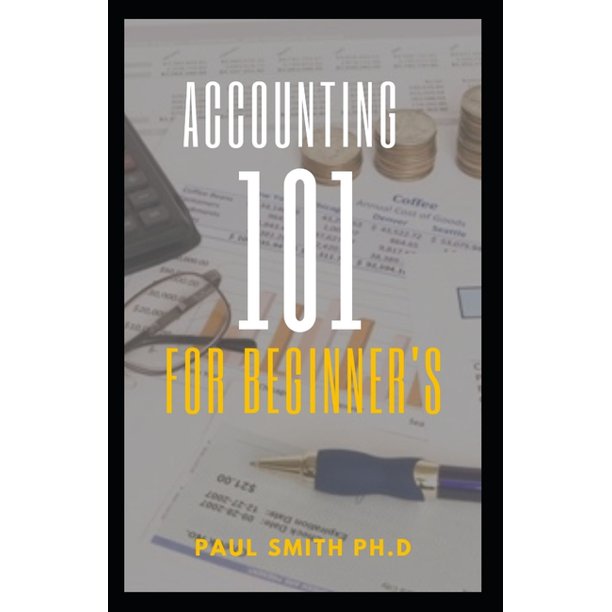
It is important to identify and analyze potential business opportunities. It can help avoid failure and allow you to develop and implement innovative ideas that will benefit your business. Also, opportunities offer the chance to solve problems or provide customers with better value propositions. They also enable the business to improve its performance and develop efficient business models. Success is about identifying opportunities and seizing them before it's too late.
SWOT analysis
If you're running a business, it can be helpful to perform a SWOT analysis. This type of analysis is a strategic planning tool that examines a business's strengths, weaknesses, opportunities, and threats. It can be used for guiding your company towards more profit-oriented strategies. A SWOT analyst independent of your company can help you determine the best course and make recommendations about which strengths and weaknesses to focus on. A typical SWOT analysis is presented as a four-sided square, with each quadrant representing four elements: threats, opportunities, and weaknesses. This format can help you quickly determine where you are in relation your competitors. You should ensure that each quadrant represents a balanced representation of your strengths and weaknesses.

The characteristics of a great opportunity
Some common characteristics make for good business opportunities. They are relevant to the market or scenario they are being evaluated. They are highly adaptable and can grow to benefit many markets or industries. They can help companies achieve their goals, and they are likely to return on investment. Additionally, they can make the most of existing resources and are practical.
Relevance
Opportunities serve as the basis for action, allowing businesses to develop new ideas and improve their performance. Opportunities can come from existing market problems unsolved or new problems arising out of current trends.
It is possible
The feasibility of a business can be determined by analyzing the financials of the business. This is done by creating a complete business plan and financial projections for at least three years. An overview of the plan can help you determine if your business is worth developing a more detailed plan. A break-even point in business is also important. It is the sales volume required to pay your costs and still make a profit.
Strengths
It is important to know your company's strengths as a business owner. Your strengths are what your business excels at and can help you to compete with your competition. These could be assets, capabilities or accomplishments. These can also be weaknesses. Your strengths and weaknesses may change as your business grows and changes. You can't change your weaknesses but you can adapt to new situations and make use of your strengths.

Weaknesses
When it comes to building a business, identifying a business' strengths and weaknesses is critical to its success. Without the right tools, equipment, processes and procedures, employees cannot achieve optimal results. To improve the business, identify weaknesses and address them.
FAQ
Which industries use consultants?
There are many different types. Some focus on one particular type of business while others specialize in more than one area.
Some consultants work only for private companies, while others represent large corporations.
Some consultants also work internationally and can help companies around the globe.
How did modern consultancy become possible?
Accounting professionals were the first to become consultants. They helped companies manage their finances. They were able to manage financial information and became "accounting experts". They soon expanded their roles into other areas like human resources management.
The French word meaning "to advise" in French is what gave rise to the term "consultant". This term was originally used by businessmen to denote someone who could give guidance on how to run an enterprise. Today, business owners still use the term consultant to refer to any type of professional advisor.
How can I be a successful consultant?
First, find a subject you're passionate about. Building relationships is the next step. It is crucial to learn about your clients and understand their needs. Finally, you must deliver results.
While you don't need to be the best at all things, it is important to be better than others. You also need to have a passion for what you do. It doesn't suffice to say, "I will be a consultant." It's important to believe in your abilities and do what you love.
Can you run a business consulting from your home?
Absolutely! Actually, this is what many consultants already do.
Working remotely is a common way for freelancers to work. They use tools like Skype, Trello (Slack), Trello, Basecamp and Dropbox. To avoid being left out of company perks, they often set up their own office space.
Some freelancers prefer to work at libraries and cafes instead of traditional offices.
And others choose to work from home because they enjoy being surrounded by their children.
There are pros and cons to working remotely. It is worth it if you love your work.
Who hires consultants
Many organizations hire consultants to assist with projects. These consultants can be found in small and large businesses as well as government agencies, universities, educational institutions, non-profits, and education institutions.
Some consultants work directly with these organizations while others freelance. In both cases, the process for hiring depends on how complex and large the project is.
When hiring consultants, you will probably go through several rounds of interviews before choosing the person you think would be best suited for the position.
Can anyone be a consultant?
A consultant is someone who can help you reach your goal by providing advice on ways to make things better, more cost-effective, etc.
A consultant may help you solve problems, make decisions, or negotiate with others.
Consultants are often hired to help with specific tasks and projects.
Consultants are usually paid hourly, daily or per project.
What are the advantages of being a consultant?
Consultants often have the option to choose when and what they do.
This means you can work whenever you like and wherever you wish.
It also means you can easily change your mind without worrying about losing money.
Finally, you can control your income and set your own schedule.
Statistics
- Over 50% of consultants get their first consulting client through a referral from their network. (consultingsuccess.com)
- My 10 years of experience and 6-step program have helped over 20 clients boost their sales by an average of 33% in 6 months. (consultingsuccess.com)
- On average, your program increases the sales team's performance by 33%. (consultingsuccess.com)
- According to statistics from the ONS, the UK has around 300,000 consultants, of which around 63,000 professionals work as management consultants. (consultancy.uk)
- Over 62% of consultants were dissatisfied with their former jobs before starting their consulting business. (consultingsuccess.com)
External Links
How To
How to start a consulting company and what should I do first?
A consulting business is a great way of making money online. You don't need any previous business experience or investment capital. It is possible to create a website to launch your consulting business. To promote your services, you will need to create a website.
These tools allow you to make a marketing program that includes the following:
-
Writing content (blogs).
-
Establishing connections (contacts)
-
Generating leads, also known as lead generation forms
-
Selling products via ecommerce websites
Once your marketing strategy is developed, you need to find clients willing and able to pay for your services. While some people prefer to attend networking events and groups, others prefer online methods like Craigslist, Wikijiji, or Kijiji. It's up to you to make the decision.
Once you have secured new clients, you will need to discuss terms with them and their payment options. These could be hourly fees, retainer arrangements, flat-fee contracts, or other types of fees. Before you accept a client, you need to know what you expect so that you can communicate clearly all through the process.
An hourly agreement is the most common contract for a consulting service. You agree to offer certain services at a fixed fee each month or every week. Based on the service you provide, you might be able to negotiate a discount based on the length of your contract. Make sure you understand what you are signing when you accept a contract.
Next, create invoices. Send them to your clients. Invoicing is one thing that looks simple until it's actually done. There are many ways that you can invoice your clients depending on what your preferences are. Some people prefer to email their invoices directly, while others prefer to mail them hard copies. Whatever method you choose, make sure it works for you!
After you've created your invoices, you can collect payments. PayPal is the most popular payment option because it's easy to use and provides multiple payment options. Other payment processors such as Square Cash. Google Wallet. Apple Pay. Venmo.
Once you're ready for collecting payments you'll need to set up bank account. Separate checking and savings accounts allow you to keep track of income and expenses separately. When paying bills, it is also beneficial to set up automatic transfer into your bank account.
While starting a consultancy company may seem daunting, once you master the basics, it becomes easy to manage. Check out this blog post for more information about starting a consultancy company.
It's a great way for extra income without having to worry about hiring employees. Remote consultants don't need to be tied down by office politics or work long hours. Since you are not tied down by regular working hours, you have more flexibility than a traditional employee.